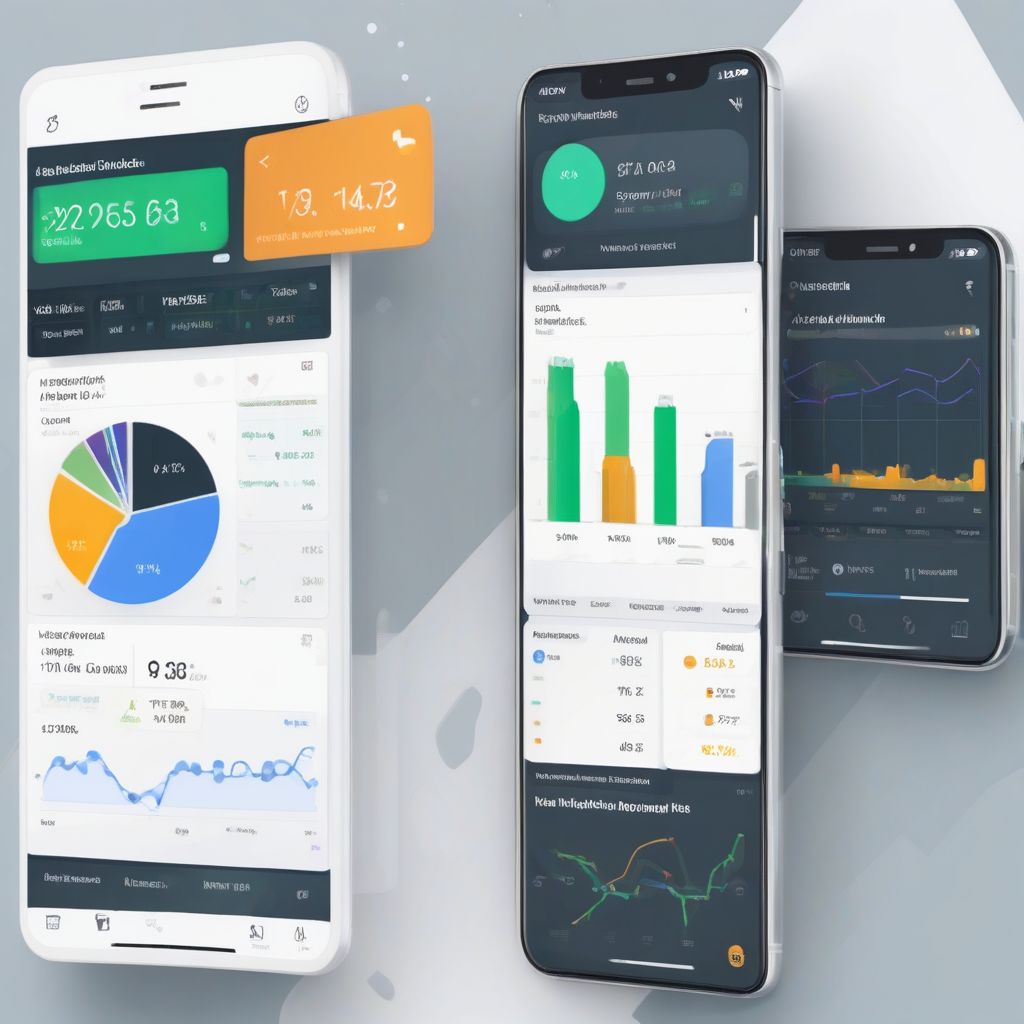Imagine this: you’ve poured your heart and soul into developing an amazing health and fitness app. It’s packed with delicious, healthy recipes, customized workout plans, and a supportive community. You launch it with high hopes, dreaming of helping people around the world achieve their wellness goals. But then… crickets. Downloads are low, engagement is minimal, and you’re left wondering what went wrong.
This, my friend, is where the magic of app analytics comes in. In the crowded digital marketplace, simply having a great app isn’t enough. You need data-driven insights to understand your audience, optimize performance, and craft marketing strategies that actually resonate.
Unlocking the Power of App Analytics: Why It’s a Game-Changer
App analytics are like a window into the soul of your users. They provide a treasure trove of information about how people interact with your app, giving you the power to:
1. Know Your Audience Like the Back of Your Hand:
Imagine being able to segment your users based on their dietary preferences, fitness levels, or engagement patterns. With app analytics, you can! This granular understanding allows you to:
- Personalize the User Experience: Tailor content, recommendations, and offers based on individual user needs and behaviors. For example, as a nutrition expert, you could use data to create personalized recipe recommendations based on a user’s dietary restrictions or weight loss goals.
- Target Marketing Campaigns Effectively: Reach the right people at the right time with the right message. App analytics can help you identify which channels (e.g., social media, email) your target audience frequents and what kind of messaging resonates with them.
2. Boost Engagement and Retention:
One of the biggest challenges app developers face is keeping users engaged over time. App analytics can help you combat this by:
- Identifying Pain Points: Pinpoint areas where users are dropping off, encountering bugs, or facing navigation issues. Addressing these friction points can significantly improve the user experience and reduce churn.
- Optimizing App Performance: Monitor key metrics like load times, crash rates, and battery usage. A smooth and efficient app is crucial for keeping users satisfied.
- Running A/B Tests: Experiment with different versions of your app’s features, design, or messaging to see what resonates best with your audience.
3. Maximize Your Marketing ROI
In the world of marketing, data is king. App analytics empowers you to:
- Measure the Effectiveness of Campaigns: Track downloads, sign-ups, and other conversions to see which marketing channels and campaigns are delivering the best results.
- Optimize Ad Spend: Allocate your marketing budget strategically by identifying which campaigns are driving the most high-value users.
- Make Data-Driven Decisions: Base your marketing strategies on real user data rather than guesswork, leading to smarter, more impactful decisions.
Key App Analytics Metrics for Marketing Success
To harness the full potential of app analytics, it’s important to familiarize yourself with key metrics:
- Downloads and Installs: Track the number of times your app has been downloaded and installed.
- Active Users: Monitor daily, weekly, and monthly active users to gauge user engagement.
- Retention Rate: Measure the percentage of users who continue using your app over time.
- Session Length and Frequency: Understand how long users spend on your app and how often they return.
- User Acquisition Cost (CAC): Calculate the average cost of acquiring a new user.
- Customer Lifetime Value (CLTV): Estimate the total revenue a user generates during their relationship with your app.
 App Analytics Dashboard
App Analytics Dashboard
From Insights to Action: Using App Analytics to Drive Marketing Strategies
Let’s bring this all together with a practical example. Imagine you analyze your app analytics and discover that users who access personalized meal plans have a significantly higher retention rate than those who don’t. Armed with this insight, you can:
- Adjust Your Onboarding Process: Highlight the benefits of personalized meal plans during the onboarding process to encourage adoption.
- Run Targeted Campaigns: Launch social media ads or email campaigns specifically promoting the personalized meal plan feature to users who haven’t yet tried it.
- Offer Incentives: Consider offering a free trial or discount on premium meal plan subscriptions to entice more users to experience the value of this feature.
Conclusion: Embrace the Data-Driven Approach
In today’s competitive app landscape, ignoring app analytics is like navigating a maze blindfolded. By embracing a data-driven approach, you gain invaluable insights into user behavior, preferences, and needs. This knowledge empowers you to optimize your app, personalize the user experience, and craft marketing strategies that resonate with your target audience. So, dive into your app analytics, listen to what your data is telling you, and watch your app soar to new heights.
What are your biggest challenges when it comes to using app analytics for marketing? Share your thoughts and questions in the comments below!
[amazon bestseller=”app analytics”]
